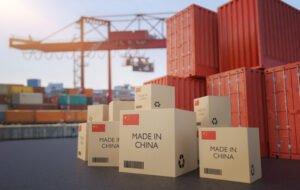In the globalized business environment, engaging with international partners is crucial for growth and competitiveness. China, as one of the largest economies and manufacturing hubs in the world, presents vast opportunities. However, entering into business agreements with Chinese companies requires meticulous due diligence, especially regarding their legal track record. Scrutiny of their history of adhering to contractual agreements and protecting intellectual property (IP) is essential to safeguard your business interests.
Table of Contents
ToggleEvaluating Contract Compliance
1. The Significance of Contractual Obligations
Assessing a company’s track record of upholding contractual obligations is critical when determining its reliability. Companies that have previously breached contracts may likely disregard future agreements’ terms and clauses. A consistent history of honoring legal contracts demonstrates trustworthiness and reliability, indispensable when entering any business arrangement. Ensuring your potential partner has a spotless record of contract compliance can prevent future disputes and foster a stable business relationship.
2. Detailed Assessment of Contract Breach History
Thoroughly researching a potential Chinese partner’s background can reveal if they have been involved in legal disputes or lawsuits related to contract breaches. Key areas to investigate include non-performance, late deliveries, and quality issues. Companies with a history of failing to meet contractual obligations should raise significant concerns. Conversely, a clean record instills confidence in their commitment to upholding any agreement terms. This research involves checking public records, court documents, and industry references for a comprehensive understanding.
Gauging Reputation and References
Importance of Long-Standing Business Relationships
Reputable companies with long-standing business relationships and positive references from previous clients are more likely to prioritize contract adherence. Such companies often have more to lose in terms of reputation and future business prospects if they fail to honor agreements. Conversely, companies with poor reputations or limited verifiable references may pose higher risks as they may be less concerned with maintaining contractual commitments. Gathering testimonials from previous partners and examining the company’s standing within the industry can provide valuable insights.
Mitigating Risks and Legal Recourse
1. Assessing Potential Risks
By thoroughly vetting a company’s legal track record regarding contract compliance, you can better assess the potential risks associated with partnering with them. This process involves understanding their past legal issues, current standing, and the measures they have in place to prevent future breaches. If breaches occur, having documented evidence of their past transgressions can strengthen your legal position and increase the chances of successful recourse through the Chinese legal system. Detailed contracts with clear terms and conditions, backed by a solid understanding of the partner’s legal history, are crucial in mitigating risks.
The Importance of Knowing the Chinese Legal Name
Knowing the Chinese legal name of the Chinese entity is crucial for legal accuracy and enforcement. The official Chinese name is the only name recognized by Chinese authorities and courts. Using the exact legal name in contracts ensures that your agreements are binding and enforceable under Chinese law. This precision can prevent potential disputes over the identity of the contracting parties and ensure that legal documents are correctly attributed.
2. Legal Name of the Legal Person
Similarly, knowing the Chinese name of the legal person, or the individual authorized to sign contracts on behalf of the company, is vital. This person is often the legal representative and holds significant responsibility and authority within the company. Ensuring that this individual’s name is correctly identified and recorded in all legal documents helps validate the contract’s legitimacy and enforceability. It also helps in any legal proceedings or negotiations, providing clarity and reducing the risk of fraudulent activities.
Intellectual Property Considerations
1. Protecting Intellectual Property (IP) Rights
While the primary focus when evaluating Chinese companies should be on their history of upholding contractual agreements, intellectual property (IP) violations are also a significant concern. Ensuring that the company respects IP laws and has no history of infringements is vital. A partner with a solid track record in protecting IP rights demonstrates a commitment to ethical business practices and reduces the risk of IP theft or misuse.
2. Addressing the Problem of Product Copying and Trademark Squatting
China has long been a hotspot for issues such as copying products, trademark squatting, and unauthorized applications for design protections by Chinese entities or private persons. Foreign companies must be vigilant about these risks. Trademark squatting involves Chinese entities registering foreign trademarks in China, preventing the rightful owners from using their brands. Similarly, copying product designs and applying for protections in China can undermine the original company’s market presence and lead to legal battles.
3. Preventative Measures
To combat these issues, foreign companies should proactively register their trademarks and designs in China as early as possible. Monitoring the market for potential infringements and maintaining a robust legal strategy for defending IP rights is also essential. Collaborating with local legal experts who understand the nuances of Chinese IP law can significantly enhance your ability to protect your intellectual property effectively.
Due Diligence Essentials: How to Avoid Contracting with the Wrong Chinese Company
1. The Risks of Using Hong Kong or Macau Representatives
Mainland Chinese manufacturers sometimes employ Hong Kong or Macau-based representatives strategically to deceive and exploit foreign businesses. This setup often acts as a smokescreen, where manufacturers use these representatives to obfuscate actual business practices, deflect accountability, and complicate legal recourse. The introduction of an HK intermediary creates a buffer, intentionally muddying the waters of accountability and facilitating financial manipulations.
2. Enforcement Challenges
Enforcing a judgment from Hong Kong and Macau in mainland China is not straightforward due to their distinct legal systems. The involvement of an HK intermediary can introduce layered accountability, creating a risk of blame-shifting between the HK firm and the manufacturer. This can lead to prolonged disputes and potential project hold-ups if the Hong Kong or Macau entity faces legal or financial problems or lacks assets.
3. Strategic Precautions
To avoid these pitfalls, it is crucial to insist on contracting directly with the mainland Chinese manufacturer and ensuring all legal documents are in the name of the mainland entity. This approach simplifies legal enforcement and reduces the risk of intermediary complications. Conducting thorough background checks on all parties involved, including intermediaries, can further safeguard your business interests.
Conclusion
A company’s commitment to honoring contracts is a strong indicator of its reliability and trustworthiness as a business partner. By prioritizing the examination of their legal track record, particularly in terms of contract compliance and IP protection, you can make more informed decisions, mitigate risks, and potentially avoid costly legal battles or contractual disputes. Understanding the importance of the Chinese legal names involved adds another layer of precision and security to your agreements. Additionally, being aware of the risks associated with Hong Kong or Macau intermediaries is essential for avoiding contracting pitfalls. This due diligence process is crucial not only for protecting your business interests but also for ensuring a smooth and legally compliant partnership in the Chinese market. Taking these steps can ultimately contribute to the long-term success and sustainability of your international business ventures.
FAQs
Why is it important to investigate the legal track record of Chinese companies?
Investigating the legal track record of Chinese companies is crucial for assessing their compliance with laws and regulations, mitigating business risks, and evaluating their credibility and reliability as business partners. This due diligence helps protect your business interests and ensures a smooth, legally compliant partnership.
What should I look for when evaluating contract compliance?
You should assess the company’s history of upholding contractual obligations, checking for any past breaches, non-performance, late deliveries, or quality issues. A consistent history of honoring contracts demonstrates trustworthiness and reliability.
How can I assess a company’s reputation and references?
Look for long-standing business relationships and positive references from previous clients. Companies with a solid reputation are more likely to prioritize contract adherence. Gathering testimonials and examining the company’s standing within the industry can provide valuable insights.
How can I mitigate risks associated with potential legal issues?
Thoroughly vetting a company’s legal track record, understanding their past legal issues, and ensuring that they have measures in place to prevent future breaches can help mitigate risks. Detailed contracts with clear terms and conditions, supported by a solid understanding of the partner’s legal history, are crucial.
Why is it important to know the Chinese legal name of the entity and the legal person?
Knowing the Chinese legal name of the entity and the legal person (individual authorized to sign contracts) is essential for legal accuracy and enforcement. The official Chinese name is the only name recognized by Chinese authorities and courts, ensuring that agreements are binding and enforceable.
How can I protect my intellectual property (IP) rights in China?
Ensure that the Chinese company respects IP laws and has no history of infringements. Proactively register your trademarks and designs in China, monitor the market for potential infringements, and maintain a robust legal strategy for defending your IP rights.
What are the risks of using Hong Kong or Macau representatives?
Mainland Chinese manufacturers sometimes use Hong Kong or Macau-based representatives to obfuscate actual business practices, deflect accountability, and complicate legal recourse. Enforcing judgments from these regions in mainland China is challenging due to distinct legal systems, introducing risks of blame-shifting and prolonged disputes.
How can I avoid contracting with the wrong Chinese company?
To avoid contracting pitfalls, insist on contracting directly with the mainland Chinese manufacturer and ensure all legal documents are in the name of the mainland entity. Conduct thorough background checks on all parties involved, including intermediaries, to safeguard your business interests.
What are the benefits of thorough due diligence?
Thorough due diligence helps make informed decisions, mitigate risks, and potentially avoid costly legal battles or contractual disputes. It ensures a smooth and legally compliant partnership in the Chinese market, contributing to the long-term success and sustainability of your international business ventures.








